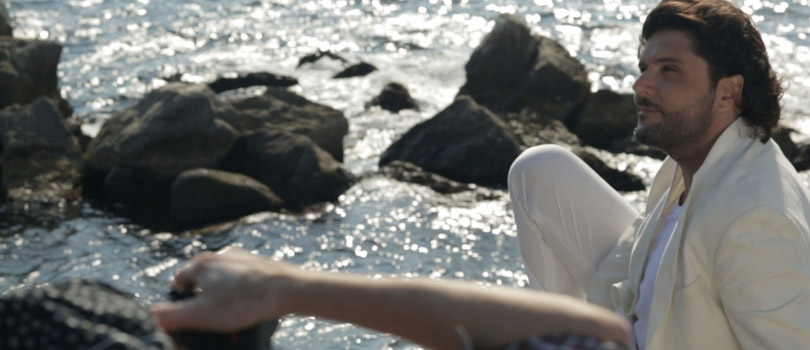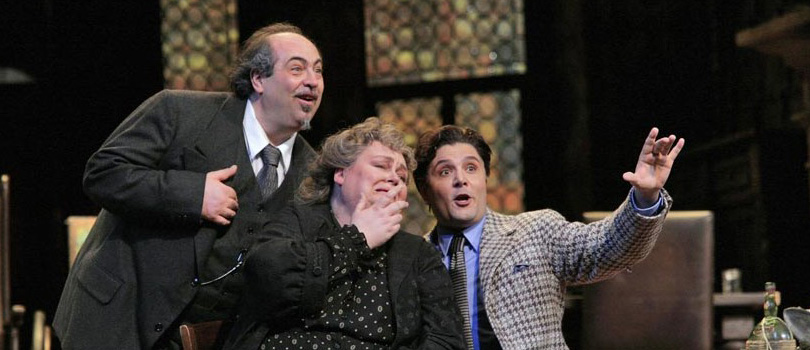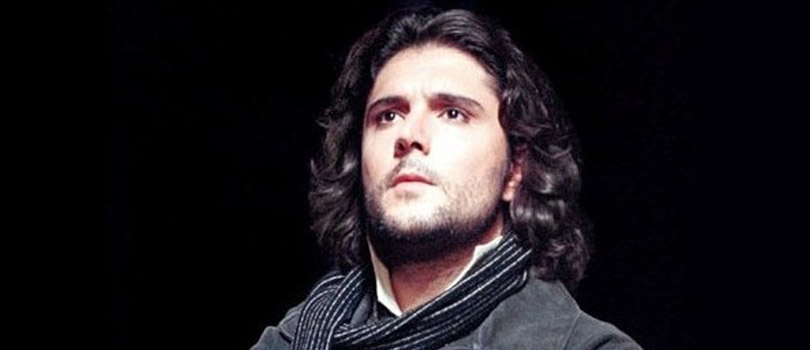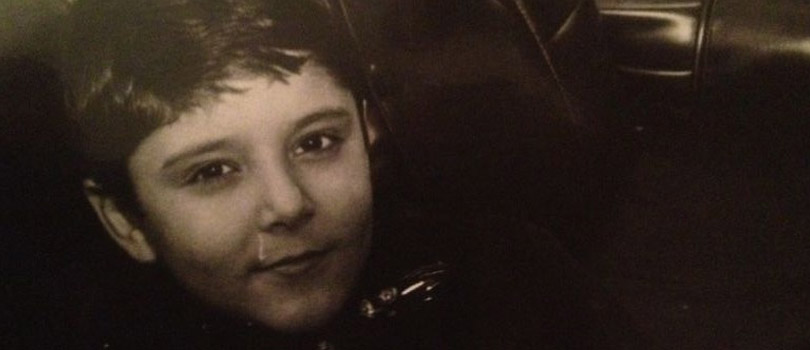Biography of Massimo Giordano
From his native Pompei to the stages of the world: the story of Massimo Giordano, one of the most prominent tenors of the international opera scene.
Fate
Born in this small city outside of Naples to a blue-collar family, at age eight Giordano goes to live with his parents and little sister in Trieste, where his father gets a job as a custodian at Giuseppe Tartini Musical Conservatory. Even if the ties with his homeland are never severed and his father’s Neapolitan spirit plays a crucial role in his future, moving to Trieste will prove to be a sign of fate. Massimo begins studying flute in conservatory, but at eighteen, on the eve of his graduation, something surprising happens….
How the music world lost a flutist and gained a tenor
As Massimo himself recalls: “As an instrumentalist I thought that the opera and the world of singers weren’t part of my personality. Wrong! A few days before graduating in flute, a blind/visually impaired pianist friend of mine asked me if I wanted to sing a Neapolitan song. My father (who had a lovely leggero tenor voice) had always told him that I also had a beautiful voice. The two of them went out together in their free time, singing, playing and having a good time. So my friend asked me if I wanted to try and sing like my father; as soon as I opened my mouth, he cried: ‘You’re absolutely crazy! What are you doing with that flute?! You should be studying opera!’”. That’s how the music world lost a flutist and gained a tenor.
On the Launchpad
He wins different contests after graduating, but just like Corelli, Cerquetti, Bastianini, Moffo, Ruggero Raimondi, Bruson, Devia, and many others, it is the Lirico Sperimental A. Belli Contest in Spoleto that gives him his 1997 debut as the protagonist in Mozart’s La clemenza di Tito at Teatro Caio Melisso. In his second role as Alfredo in La traviata, he is only able to sing during the dress rehearsal due to an earthquake that devastates the Teatro Nuovo. He is then launched with the role of Ernesto in Don Pasquale at Trieste’s Verdi amongst the rejoicing of his ex-colleagues.
From Werther…
His voice’s purely romantic color could only evoke Werther, the classic romantic hero. After the preview at Valli in Reggio Emilia in 1998, doors of theatres everywhere open wide for him. The following year we see him in Gounod’s Roméo et Juliette with Mariella Devia at Regio di Parma and in 2000, during the Jubileaum, comes his success in Le jongleur de Notre Dame at the Opera di Roma. Giordano subsequently inaugurates 2001 as Fenton in the legendary Falstaff, first by Abbado and then by Maazel in Salzburg. Chailly conducts him time and again in Verdi’s Requiem around Europe and in 2005 he sings the Requiem in Rome with Gelmetti in memory of John Paul II. In 2006 he debuts at the Metropolitan of New York in Manon by Massenet alongside Renée Fleming. Anna Netrebko, another “diva”, is his partner in 2008 in another celebrated Manon in Vienna. With her Massimo then goes on a triumphant tour throughout Europe in 2009.
…Cavaradossi (and much more)
Meanwhile his voice deploys the total range of the lyric tenor, venturing episodically into the most impelled classical repertoire. This is how it grows. Thus we have Cavaradossi in the main theatres of the world, then Don Jose’s Carmen in Berlin and Vienna in 2009-2010; followed by Don Carlo, without deserting Alfredo in La traviata and Rodolfo in La bohème.
Citizen of the world’s theaters
The Scala of Milan, The Metropolitan of New York, The Staatsoper of Vienna, Munich, Berlin, The Royal Opera House of London, and the Opéra of Paris are just some of Massimo’s musical homes, by now citizen of the world’s theaters. From Sydney to Tokyo, Chicago, Rome, Zurich, Dresda, Madrid…and the festivals, with legendary productions such as Verdi’s Falstaff conducted by Abbado in Salzburg (directed by Declan Donnellan) or his personal success with Lensky in Eugene Onegin by Tchaikovsky in Glydebourne in 2008, with Vladimir Jurowski conductor and Graham Vick director.
Amore e tormento (Love and pain)
2013 is the year of Massimo’s album debut. In May his first solo album Amore e tormento (Love and pain) is released thanks to an exclusive contract with BMG. Accompanied by the Maggio Musicale Fiorentino Ensemble conducted by Carlo Goldstein, he sings about love by Puccini, Verdi, Cilea, Umberto Giordano, in the most celebrated romances by Tosca, Andrea Chenier, Turandot, L’arlesiana, Adriana Lecouvreur and in some forgotten treasures.
Private vices, public virtues
Vices: his family, his two children, his parents, his strong ties to his father, but also his passion for the games of chess and soccer; just as his passion for figurative arts from past centuries. Giordano resides with his loved ones in Trieste. Virtues: those evident to everyone every time he walks onstage.
Thank you Maestro!
From Claudio Abbado to Zubin (Mehta), prestigious conductors from A to Z: Riccardo Chailly, James Levine, Lorin Maazel, Antonio Pappano, Michel Plasson, Yuri Temirkanov. Not to mention Marco Armiliato, Maurizio Benini, Bruno Campanella, Alain Guingal, Vladimir Fedoseyev, Gabriele Ferro, Gianluigi Gelmetti, Fabio Luisi and Vladimir Jurowski. Production often in the hands of the who’s who in contemporary theater: Luca Ronconi or Graham Vick. Franco Zeffirelli or Declan Donnellan.
And it’s still not over ….
New challenges, important debuts: in 2013 the repertory is enriched by the role of Forest in Verdi’s Attila, in concert at the Deutsche Oper of Berlin, in 2014 the role of Maurizio of Sassonia in a new production of Adriana Lecouvreur at the Wiener Staatsoper, and at the Cavaliere Des Grieux in Manon Lescaut at the Easter Festival at Baden Baden, under the direction of Simon Rattle heading the Berliner Philarmoniker. And it’s still not over….



